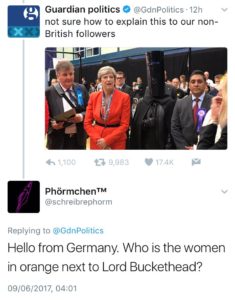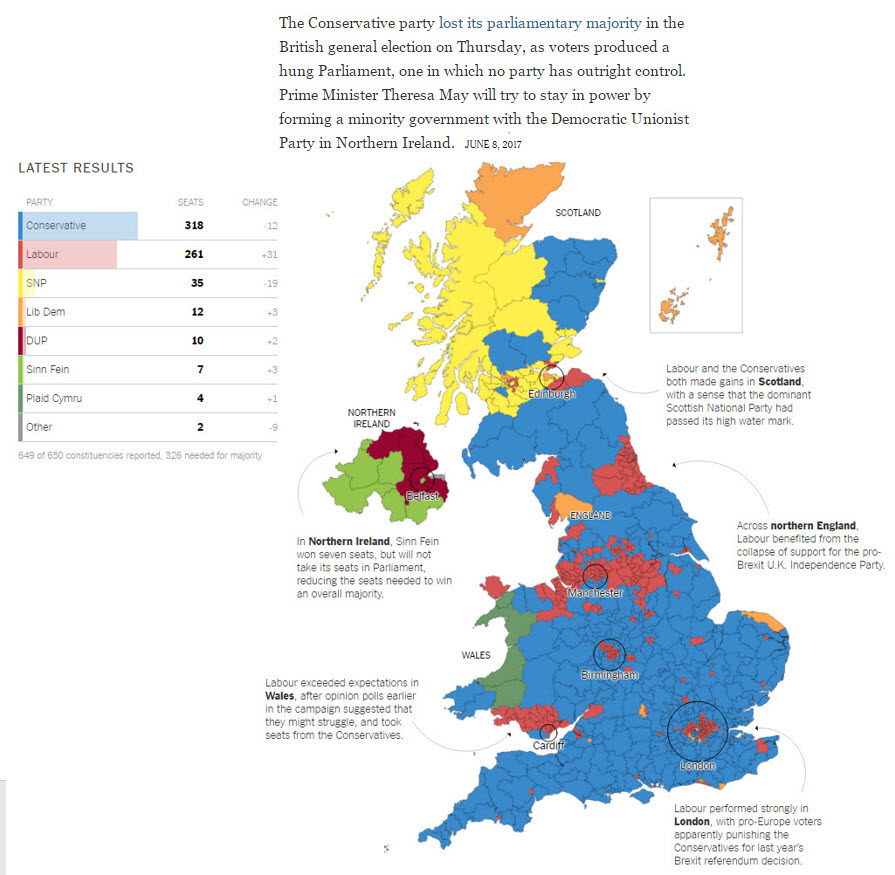
The snap ‘Brexit Election’ in Great Britain resulted in losses for Prime Minister Theresa May. She lost the first outright majority that the Conservatives had had for 18 years in Parliament. As for Brexit – since Article 50 has been triggered, there seems to be no turning back. However, the start of the Brexit negotiations may now be delayed, or what could have been a ‘hard’ Brexit may now become a ‘soft’ Brexit.
The difference between ‘hard’ Brexit and ‘soft’ Brexit is as follows (from the Independent newspaper):
A hard Brexit arrangement would likely see the UK give up full access to the single market and full access of the customs union along with the EU.
The arrangement would prioritise giving Britain full control over its borders, making new trade deals and applying laws within its own territory.
A soft Brexit approach would leave the UK’s relationship with the EU as close as possible to the existing arrangements, and is preferred by many Remainers.
The UK would no longer be a member of the EU and would not have a seat on the European Council. It would lose its MEPs and its European Commissioner. But, it would keep unfettered access to the European single market.

